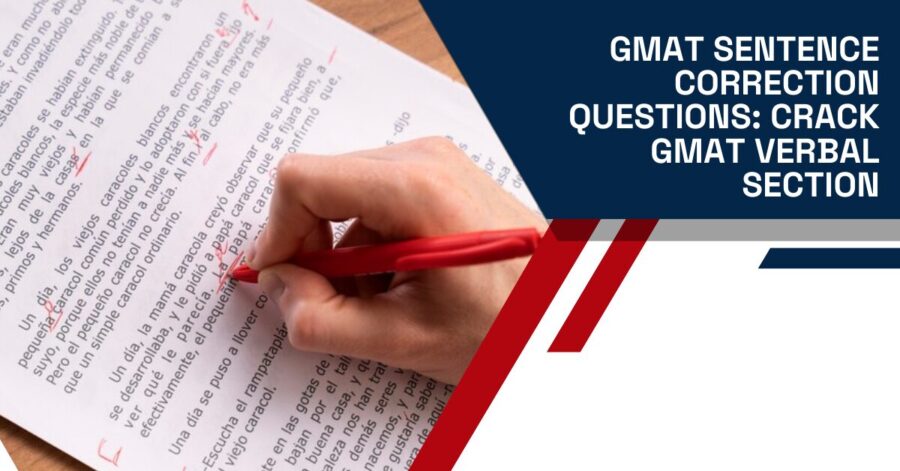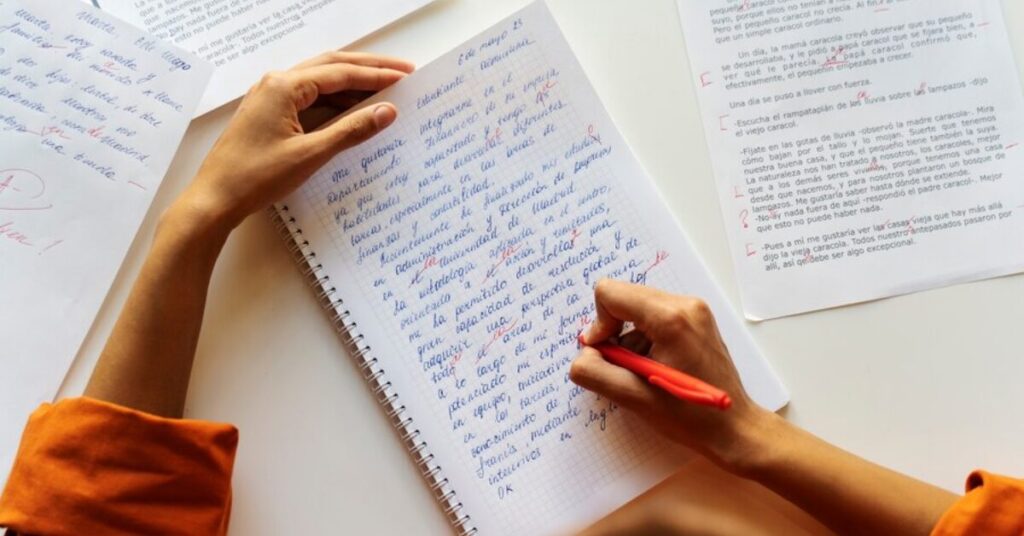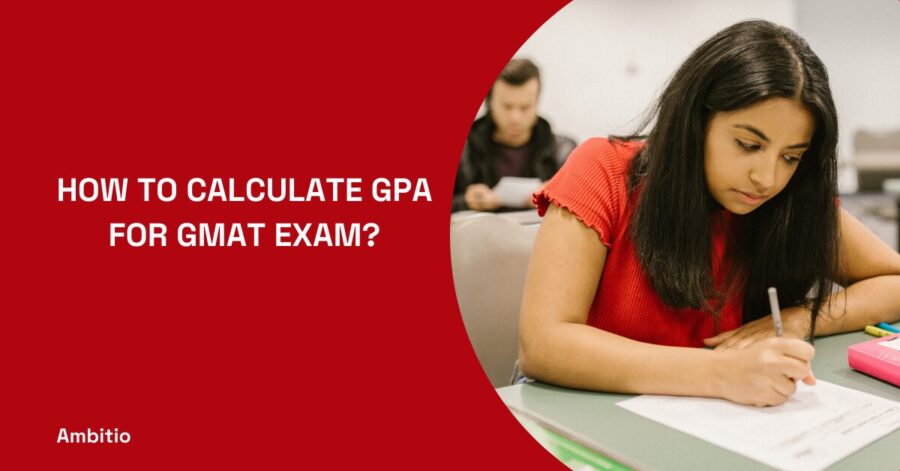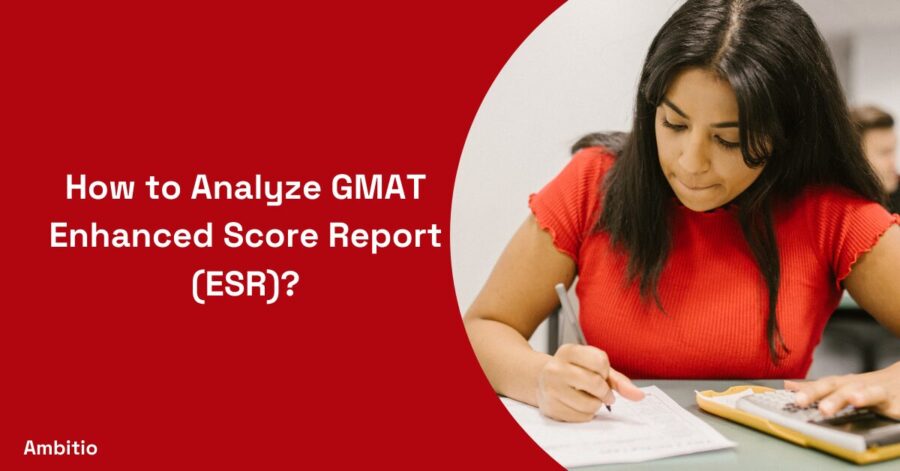16 December 2024
8 minutes read
GMAT Sentence Correction Questions: Crack GMAT Verbal Section

Key Takeaways
- GMAT Sentence Correction requires more than grammar knowledge; focus on clarity and meaning.
- Consistent practice and a strategy to spot errors quickly are crucial.
- Pay attention to subject-verb agreement, pronoun use, and parallel construction.
- Balance your study efforts across all sections, including reading comprehension and data sufficiency, for a well-rounded performance.
Did you know that the GMAT Verbal section trips up even the most confident test-takers? Sentence Correction questions, in particular, can be a real stumbling block. Many students find themselves second-guessing their instincts, lost in a maze of grammar rules and stylistic choices. It’s not just about knowing English; it’s about understanding the subtle nuances that GMAT test-makers love to exploit.
But here’s the good news: mastering Sentence Correction is entirely possible with the right approach. The key lies in developing a systematic method for tackling these questions. By honing your error-spotting skills and familiarizing yourself with common GMAT traps, you can turn this challenging section into a source of valuable points. Remember, it’s not about perfection—it’s about consistency and strategic thinking.
GMAT Sentence Correction: What Is Really Being Assessed?
GMAT Sentence Correction questions are a key part of the GMAT Verbal section, designed to assess more than just grammar rules. They challenge test-takers to evaluate the effectiveness of written English. While knowing subject-verb agreement and proper modifier use is crucial, the GMAT focus extends beyond basic grammatical correctness.

When approaching these verbal questions, consider factors like clarity, conciseness, and the overall meaning of the sentence. You’ll often find multiple grammatically correct answer choices, requiring you to use verbal reasoning to eliminate redundant or unclear options. Look at the answer choices critically, checking for parallelism, proper pronoun use, and correct idiom usage. GMAT has plenty of benefits, and brushing up your grammar skills is one among them.
Practice questions will help you develop a strategy to quickly identify issues with verb tenses, noun plurals, and sentence construction. Remember, the goal is to select the answer choice that best expresses the original sentence’s intent while adhering to standard written English conventions. As you prep for 2024, focus on honing these skills to boost your GMAT score. You can always start with a GMAT beginner’s guide to ease into the process.
GMAT Sentence Correction Best Practices
Let’s dive into some GMAT Sentence Correction best practices. But before that, keep in mind that GMAT is an adaptive test. This question type is all about efficiency. Your GMAT prep should focus on quickly spotting differences between the original sentence and answer choices. Start by reading the sentence carefully, then scan to eliminate answer choices that clearly violate grammatical rules. Choose the right GMAT books to help you with the process as well.
Look for common issues like subject-verb agreement, misplaced participles, or awkward construction. Often, you can quickly narrow it down to two answer choices. From there, consider which option best preserves the original sentence’s meaning while simplifying its structure. Don’t overthink it – sometimes the correct answer just sounds right. Also, have a sloid GMAT study plan as well.
This approach will serve you well in Critical Reasoning questions too. As you practice, you’ll develop the instincts to make these decisions swiftly. Remember, the goal isn’t just to make the sentence grammatically correct, but to choose the most effective way to express the idea. With consistent practice, you’ll improve your ability to quickly eliminate answer choices and boost your GMAT score.
Common Grammatical Errors To Avoid in the GMAT Sentence Correction Section
The GMAT Sentence Correction section, part of the verbal reasoning section, is designed to assess your ability to recognize and correct grammatical errors in sentences. Understanding the intended meaning and leveraging every clue in the sentence is crucial. If you plan for undertaking GMAT courses to help you with the process, make sure they have a solid verbal section as well. Here are some common grammatical errors to avoid:
Subject-Verb Agreement
One of the primary issues test-takers face is subject-verb agreement. It is essential to ensure that the subject and verb agree in number, meaning singular subjects take singular verbs, and plural subjects take plural verbs. For example, “The list of items is on the desk” is correct, whereas “The list of items are on the desk” is not. GMAT order selection becomes a game changer when you know your strong and weak points.
Pronoun Agreement
Another common error involves pronoun agreement. Pronouns must agree with the nouns they replace in both number and gender. For instance, “Each of the students must bring his own lunch” is correct, while “Each of the students must bring their own lunch” is incorrect.
Modifier Placement
Modifier placement is another critical aspect to watch out for. Modifiers should be placed next to the words they modify to avoid ambiguity. For example, “Walking to the store, I saw beautiful flowers” is correct, while “Walking to the store, the flowers were beautiful” is not.
Parallel Structure
Parallel structure also plays a significant role in sentence correction. Elements in a series or comparison should be in the same grammatical form. An example of correct parallel structure is “She likes reading, jogging, and cooking,” as opposed to “She likes reading, to jog, and cooking.” Know where you stand in terms of grammatical efficiency and manage your GMAT preparation time accordingly.
Idiomatic Expressions
Idiomatic expressions must be used correctly, as they are a standard part of written English. For example, “He is responsible for overseeing the project” is correct, whereas “He is responsible to overseeing the project” is not.
Comparison Errors
Comparison errors are another frequent issue. Comparisons must be logical and clear, such as “Her salary is higher than her brother’s salary,” not “Her salary is higher than her brother.”
Verb Tense Consistency
Maintaining verb tense consistency throughout a sentence is crucial unless there is a clear reason to change. For example, “He was running and then jumped over the fence” is correct, while “He was running and then jumps over the fence” is incorrect. Redundancy should also be avoided. Superfluous words that do not add meaning to the sentence should be eliminated, such as “He returned to the store” instead of “He returned back to the store.”
Comparative and Superlative Forms
When dealing with comparative and superlative forms, use the correct form of adjectives and adverbs when making comparisons. For example, “She is the more intelligent of the two” is correct. Logical predication is another area to focus on, ensuring that the sentence logically follows from its subject and predicate. For instance, “A surge in sales of tablets suggests that people are increasingly using them for work and play” is correct.

When practicing with official GMAT practice questions or official SC questions, it is important to underline the part of the sentence being tested, eliminate wrong answer options by identifying grammatical errors, and modify the sentence to correct grammatical structure while retaining the intended meaning. Have a clear idea of the GMAT exam pattern as well. Understanding how sentences are written grammatically will help you find the error and play the game properly. The Graduate Management Admission Council has designed this section to assess a certain level of grammar knowledge. Try doing plenty of GMAT question papers.
For harder questions, every little hint matters. Test-takers must see whether they absolutely need to modify their grammatical structure. Incorrect answers often lie in plural verb errors or superfluous language, making it essential to leverage every clue and eliminate the wrong answers. By playing the game properly and understanding what the test is trying to test, you will find the way to eliminate answer options effectively. This ability to leverage every clue in the sentence is one of the three key skills you need to succeed in the GMAT verbal section.
GMAT Sentence Correction Questions
Here are some GMAT sentence correction practice questions for you to brush up your skills and ace this section of the GMAT. Try solving as many GMAT questions as possible for mastering this section.
Question 1
Incorrect Sentence: Despite of the harsh weather conditions, the construction of the bridge continued without significant delays.
Options:
(A) Despite of the harsh weather conditions
(B) Despite the harsh weather conditions
(C) In spite of the harsh weather conditions
(D) In despite of the harsh weather conditions
(E) Due to the harsh weather conditions
Correct Answer: (B) Despite the harsh weather conditions
Explanation: The correct idiomatic expression is “despite” rather than “despite of.”
Question 2
Incorrect Sentence: The committee have reached their decision regarding the new policy proposal.
Options:
(A) have reached their decision
(B) has reached their decision
(C) have reached it’s decision
(D) has reached its decision
(E) have reached its decision
Correct Answer: (D) has reached its decision
Explanation: “Committee” is a singular collective noun, so it should be paired with a singular verb “has” and the possessive “its.”
Question 3
Incorrect Sentence: Being an expert in financial planning, her advice is highly sought after by many clients.
Options:
(A) Being an expert in financial planning
(B) She is an expert in financial planning, her advice
(C) An expert in financial planning, she
(D) Because of her expertise in financial planning
(E) As she is an expert in financial planning, her advice
Correct Answer: (C) An expert in financial planning, she
Explanation: The subject “she” should directly follow the modifying phrase “An expert in financial planning.”
Question 4
Incorrect Sentence: The data indicates that there is a significant increase in online sales this quarter compared to the last one.
Options:
(A) indicates that there is a significant increase
(B) indicate that there is a significant increase
(C) indicates that there are a significant increase
(D) indicate that there are a significant increase
(E) indicating that there is a significant increase
Correct Answer: (B) indicate that there is a significant increase
Explanation: “Data” is a plural noun and should be paired with the plural verb “indicate.”
Question 5
Incorrect Sentence: The manager’s responsibility is ensuring that all tasks are completed timely and efficiently.
Options:
(A) ensuring that all tasks are completed timely and efficiently
(B) ensuring that all tasks are completed in a timely manner and efficiently
(C) ensuring that all tasks are completed in a timely and efficient manner
(D) to ensure that all tasks are completed timely and efficiently
(E) to ensure that all tasks are completed in a timely and efficient manner
Correct Answer: (E) to ensure that all tasks are completed in a timely and efficient manner
Explanation: The correct idiomatic expression is “in a timely and efficient manner.” Additionally, “responsibility is to ensure” is more appropriate than “responsibility is ensuring.” Understand how many questions there are in GMAT verbal to help you have an idea of tackling them.
Conclusion
Nailing GMAT Sentence Correction questions requires a strategic approach, focusing on clarity, conciseness, and proper grammar. By consistently practicing and understanding common pitfalls such as subject-verb agreement, pronoun use, and parallel construction, you can improve your performance. Also, have a clear idea of the GMAT format as well. Additionally, don’t overlook other GMAT sections like reading comprehension and data sufficiency, as a holistic preparation strategy is key. Remember, attention to detail in word order and structure will help you excel in this challenging but rewarding section of the GMAT. Understand the purpose of GMAT exam as well.
Elevate your GMAT performance and unlock the doors to prestigious business schools with Ambitio’s comprehensive preparation tools. Our expertly designed resources and personalized strategies will help you master each section of the GMAT, ensuring you achieve a score that sets you apart in the competitive admissions landscape.
FAQs
What types of errors are commonly tested in GMAT Sentence Correction questions?
Common errors include subject-verb agreement, pronoun agreement, modifier placement, parallel structure, idiomatic expressions, comparison errors, and verb tense consistency.
How can I improve my error-spotting skills for GMAT Sentence Correction?
Practice regularly with official GMAT questions, focus on understanding grammar rules, and develop a systematic approach to identifying and correcting errors quickly.
Why is understanding the meaning of the sentence important in Sentence Correction?
Understanding the intended meaning helps you choose the most concise and clear answer, ensuring that the sentence is not only grammatically correct but also effective in communication.
Are there any specific strategies for eliminating incorrect answer choices?
Yes, start by reading the original sentence carefully, then scan and eliminate choices with obvious grammatical errors. Focus on clarity and conciseness to narrow down to the best option.
How can practicing Sentence Correction questions help with other sections like Critical Reasoning?
Developing error-spotting skills and understanding sentence structure in Sentence Correction can enhance your ability to analyze and evaluate arguments in Critical Reasoning questions.
What role does parallel construction play in Sentence Correction questions?
Parallel construction ensures elements in a series or comparison are in the same grammatical form, which improves the sentence’s clarity and readability.
How can I balance my preparation for Sentence Correction with other GMAT sections like reading comprehension and data sufficiency?
Create a study schedule that allocates time for each section, practice a variety of question types, and focus on developing a comprehensive understanding of grammar, logic, and analytical skills.

You can study at top universities worldwide!
Get expert tips and tricks to get into top universities with a free expert session.
Book Your Free 30-Minute Session Now! Book a call now




























